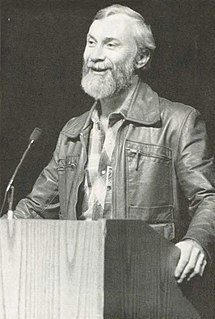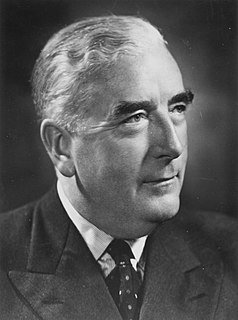Ein Zitat von Samuel Johnson
Es gibt bestimmte Themen, die nie erschöpft sind. Von einigen Bildern und Gefühlen kann man sagen, dass der Geist des Menschen verliebt ist; es begegnet ihnen, so oft sie auch vorkommen, mit der gleichen Begeisterung, die ein Liebhaber beim Anblick seiner Geliebten empfindet, und trennt sich von ihnen mit dem gleichen Bedauern, wenn sie nicht mehr genossen werden können.
Verwandte Zitate
Der wahre Christ betrachtet alle Freunde Christi als seine Freunde, als Mitglieder desselben Leibes, als Kinder derselben Familie, als Soldaten derselben Armee, als Reisende in derselben Heimat. Als er sie trifft, kommt es ihm so vor, als würde er sie schon lange kennen. Er fühlt sich in wenigen Minuten bei ihnen wohler als bei vielen weltlichen Menschen nach mehrjähriger Bekanntschaft. Und was ist das Geheimnis von all dem? Es ist einfach Zuneigung zum selben Erlöser und Liebe zum selben Herrn.
Die Klage, dass alle Toppicks beschäftigt seien, ist daher nichts weiter als das Murren der Unwissenheit oder Trägheit, wodurch einige andere und einige sich selbst entmutigen; Die Veränderlichkeit der Menschheit wird den Schriftstellern immer neue Bilder liefern, und die Üppigkeit der Fantasie kann sie immer mit neuen Dekorationen verschönern.
Ich habe vorhin gesagt, dass ich nicht glaube, dass das Leben eines Künstlers viel Licht auf seine Werke wirft. Ich glaube jedoch, dass seine Werke häufiger, als den meisten Menschen bewusst ist, Licht auf sein Leben werfen könnten. Ein Künstler mit bestimmten fantasievollen Ideen im Kopf kann sich dann auf Beziehungen einlassen, die ihm entgegenkommen.
Es gibt keinen Menschen ... wie weise er auch sein mag, der nicht irgendwann in seiner Jugend Dinge gesagt oder ein Leben geführt hat, deren Erinnerung für ihn so unangenehm ist, dass er sie gerne auslöschen würde. Und doch sollte er es nicht ganz bereuen, denn er kann nicht sicher sein, dass er tatsächlich ein weiser Mann geworden ist – soweit es für jeden von uns möglich ist, weise zu sein –, es sei denn, er hat alles Törichte oder Unheilvolle durchgemacht Inkarnationen, die dieser letzten Stufe vorausgehen müssen.
Was auch immer über die Sättigung des Vergnügens und des Ekels gesagt werden mag, die normalerweise der Leidenschaft folgt, jeder Mann, der ein Herz hat und nicht elend und hoffnungslos gleichgültig ist, fühlt, dass seine Liebe durch sein Glück gestärkt wird und sehr oft der beste Weg dazu ist Einen Liebhaber festzuhalten, der bereit ist zu gehen, bedeutet, sich ihm vorbehaltlos hinzugeben.
Der Mensch, dessen ganzes Leben damit verbracht wird, ein paar einfache Operationen durchzuführen, deren Auswirkungen vielleicht immer die gleichen oder fast die gleichen sind, hat keine Gelegenheit, seinen Verstand oder seine Erfindungsgabe einzusetzen, um Hilfsmittel zur Beseitigung von Schwierigkeiten zu finden kommen nie vor. Er verliert daher von Natur aus die Gewohnheit einer solchen Anstrengung und wird im Allgemeinen so dumm und unwissend, wie es für ein menschliches Geschöpf nur möglich ist.
Wenn es einen einzigen Faktor gibt, der die besten Fotografen von den Möchtegern-Fotografen unterscheidet, dann ist es die Menge der Bilder, die sie produzieren. Sie scheinen ewig zu schießen. Ich habe vielen von ihnen zugesehen, wie sie ein Bild nach dem anderen machten, auch wenn sie nicht gerade fotografierten. [...] Oft wirken diese intimen Bilder nicht so, als wären sie vom selben Fotografen aufgenommen worden. Und das ist ihre Faszination und ihr Charme.
Sehr oft akzeptieren Menschen, die in einem Ghetto leben, einen Teil der Stigmatisierung, die ihnen entgegengebracht wird. Ich erwähne den Fall einer japanischen Minderheit, der Burakumin, die rein japanischer Abstammung war, sich aber mit Drecksarbeit beschäftigte: Lederarbeiten, Leichen und einige andere Dinge. Es gab eine berühmte Geschichte von einem alten Mann, der fragte: „Mach es.“ Glaubst du selbst, dass du derselbe bist wie die Japaner?' Und der Außenstehende sagte: „Ich weiß nicht, wir sind dreckig.“ Ein solches Gewissen gab es in der Umgebung, in der ich lebte, nie. Man fühlte sich immer als jemand, auf den man stolz sein konnte, weil man sowohl Deutscher als auch Jude war.
Meinungsverschiedenheiten in der Politik sind ebenso unvermeidbar, wie sie bis zu einem gewissen Grad vielleicht notwendig sind; aber es ist überaus bedauerlich, dass Themen einerseits nicht mit Temperament diskutiert werden können und dass Entscheidungen nicht getroffen werden können, ohne dass die Motive, die zu ihnen geführt haben, unangemessen einbezogen werden; und dieses Bedauern grenzt an Kummer, wenn wir feststellen, dass fähige Männer, eifrige Patrioten, die die gleichen allgemeinen Ziele im Auge haben und die gleichen aufrichtigen Absichten haben, sie zu verfolgen, bei der Entscheidung über die Meinungen und Handlungen der anderen nicht mehr Nächstenliebe an den Tag legen werden.
Was wir unter Sentimentalismus verstehen, ist der Zustand, in dem ein Mensch tiefe und wahre Gefühle ausspricht, nicht weil er sie stark empfindet, sondern weil er erkennt, dass sie schön sind und dass es rührend und schön ist, sie auszusprechen – Dinge, die er gerne sagen würde fühlt, und bildet sich ein, dass er fühlt.
Und wenn einer von ihnen die andere Hälfte trifft, die eigentliche Hälfte von sich selbst, sei es ein Liebhaber der Jugend oder ein Liebhaber anderer Art, verlieren sich die beiden in einem Staunen über Liebe, Freundschaft und Intimität, aus dem man nicht mehr herauskommt den Blick des anderen, wie ich sagen darf, auch nur für einen Moment.
Jeder Mensch, so hoffnungslos seine Ansprüche auch erscheinen mögen, hat ein Projekt, mit dem er sich einen Namen machen will; eine Kunst, mit der er sich vorstellt, die Aufmerksamkeit der Welt auf sich zu ziehen; eine Eigenschaft, ob gut oder schlecht, die ihn von der Masse der Sterblichen unterscheidet und durch die andere zur Liebe überredet oder gezwungen werden können, ihn zu fürchten.
Ein Mann kann ein harter, konzentrierter und erfolgreicher Geldverdiener sein und seinem Land nie mehr als ein schreckliches Beispiel geben. Ein Manager kann hart und praktisch sein und, solange es gut läuft, das letzte Quäntchen Gewinn und Dividende herausquetschen und hinterlässt möglicherweise eine erschöpfte Branche und ein Erbe des Industriehasses. Ein harter Manager darf niemals über die eigenen Fabrikmauern hinausblicken oder sich seiner Partnerschaft in einer größeren Welt bewusst sein. Ich frage mich oft, was für ein seltsames Wiederkäuer solche Männer da sitzen und kauen, wenn ihre Arbeitstage vorbei sind und ihnen der angesammelte Reichtum des Geistes entgangen ist.
Man muss bedenken, dass das zunehmende Alter mit einer gewissen Melancholie und oft auch mit einer gewissen Jähzorn einhergeht: Tatsächlich könnte man sagen, dass das zunehmende Alter gleichbedeutend mit schlechter Laune ist. Wenn ein Mann die mittleren Lebensjahre erreicht, merkt er, dass er zu bestimmten Dingen nicht mehr in der Lage ist, dass sein Aussehen ihn verlässt, dass er einen dicken, dicken Bauch hat und dass er es nicht mehr ist, so sehr er auch noch brennen mag attraktiv für Frauen; und er rebelliert. Standhaftigkeit, Resignation und Philosophie sind wertvoller als alle Pillen, ob rot, weiß oder blau.
Im letzteren Sinne hat der Mensch ein Eigentum an seinen Meinungen und der freien Kommunikation dieser. Er verfügt über eine Eigenschaft von besonderem Wert in seinen religiösen Ansichten und in dem von ihnen diktierten Beruf und der Ausübung. Er hat das gleiche Eigentum an der freien Nutzung seiner Fähigkeiten und an der freien Wahl der Gegenstände, zu denen er sie anwendet. Mit einem Wort: So wie man sagt, dass ein Mann ein Recht auf sein Eigentum hat, kann man auch sagen, dass er ein Eigentum an seinen Rechten hat.




































